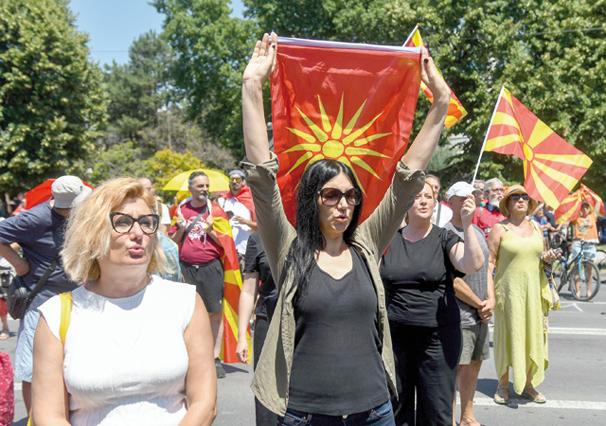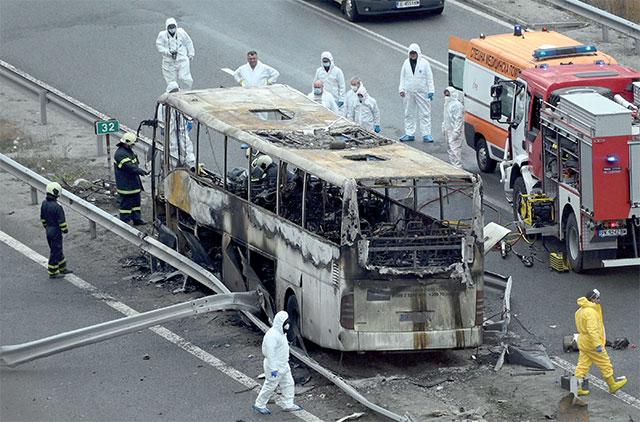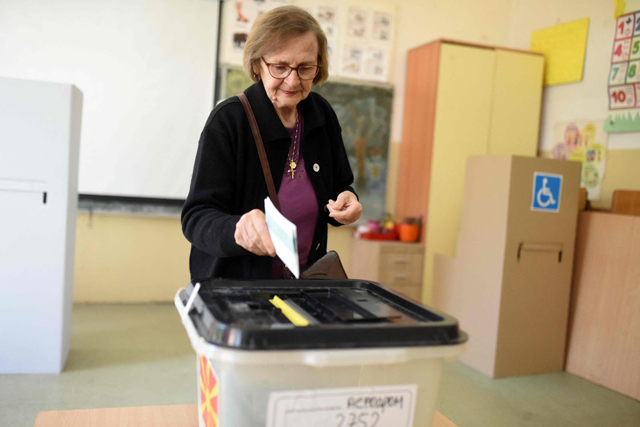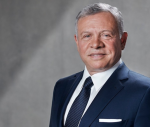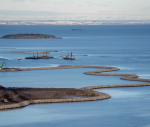You are here
Protesters rally in Skopje against compromise proposal with Bulgaria
By AFP - Jul 03,2022 - Last updated at Jul 03,2022
SKOPJE, Republic of North Macedonia — Several thousand people protested on Saturday in North Macedonia’s capital Skopje against a proposal aimed at ending a row with Bulgaria that has blocked the country’s path to EU membership.
The protest was backed by the main opposition VMRO-DPMNE rightwing party and other opposition groups.
The government on Friday revealed a new plan prepared by France during its six-month presidency of the European Union, which ended on Thursday.
While the government rejected France’s previous proposal in June it signalled it was prepared to accept the revised version, immediately starting a series of public consultations.
Under the French proposal, Skopje would have to include ethnic Bulgarians in its constitution “on an equal footing with other peoples” and change history textbooks.
The plan’s critics however, say the new plan does not differ in essence from the first one.
“We don’t need Europe if we are to be assimilated,” VMRO-DMPMNE leader Hristijan Mickoski told the protesters.
“I don’t want to be in Europe, because I have the right to be a Macedonian, who speaks the Macedonian language and who fights for his identity, his culture,” he added.
The protesters waved North Macedonia’s flags, carried banners with anti-EU slogans and shouted anti-government slogans.
Bulgaria claims the Macedonian language is a dialect of Bulgarian, and both countries lay claim to certain historical events and figures, mainly from the Ottoman era.
Bulgaria also says it is trying to protect the rights of ethnic Bulgarians in North Macedonia.
On June 24, Bulgaria’s lawmakers approved lifting the country’s veto on opening EU accession talks with North Macedonia.
That paved the way for the government to unblock the start of negotiations in exchange for EU guarantees that Skopje will meet Sofia’s demands.
North Macedonia’s EU path has been blocked since 2009, first by Greece over its name, until that dispute was resolved in 2018.
The former Yugoslav republic joined NATO in 2020.
Related Articles
BRUSSELS — Albania and North Macedonia took a step forward on their long road towards European Union membership on Tuesday, joining Balkan n
BOSNEK, Bulgaria — North Macedonia called for three days of national mourning after a tourist bus carrying its citizens caught fire and cras
SKOPJE, Republic of North Macedonia — North Macedonia on Wednesday held the first round of a presidential election — the first in a series o


